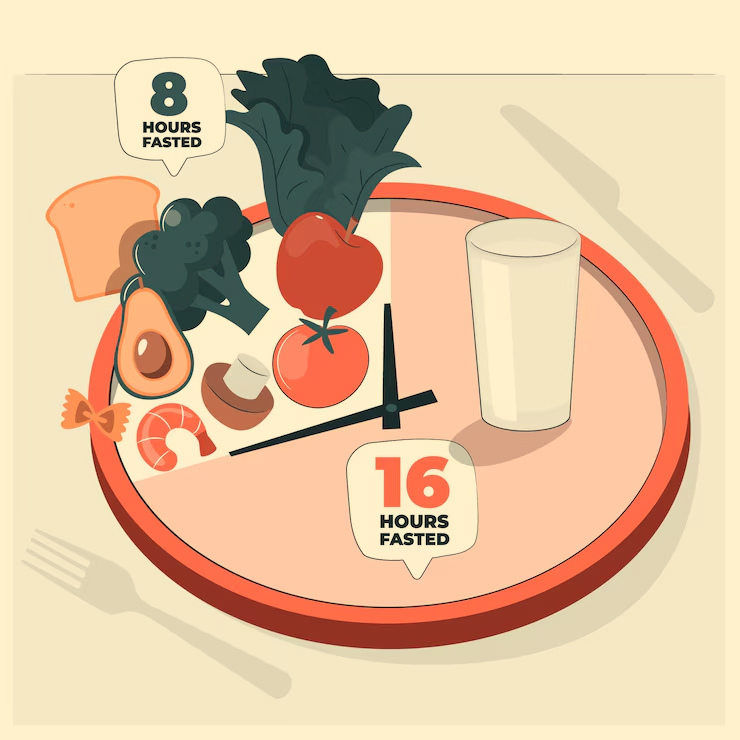
In recent years, intermittent fasting (IF) has emerged as a powerful lifestyle strategy for promoting health and well-being. While initially popularised as a weight-loss method, IF is gaining recognition for its potential role in cancer prevention. By leveraging the body’s natural processes of cellular repair, inflammation reduction, and metabolic regulation, IF may offer protective benefits against cancer development.
Table of Content:-
The Science Behind Intermittent Fasting
Intermittent fasting alternates between periods of eating and fasting, triggering processes that repair and rejuvenate cells. One of the key mechanisms behind its benefits is autophagy, the body's way of cleaning out damaged cells and regenerating new ones. This natural detox function is essential for maintaining cellular health and may help prevent mutations that lead to cancer.
To get a detailed understanding on this, OnlyMyHealth team interacted with Dr Nikhil S Ghadyalpatil, Director — Medical Oncology, Yashoda Hospitals.
According to Dr Ghadyalpatil, “During fasting periods, the body initiates autophagy, a critical cellular process that removes damaged cells and stimulates regeneration. This cleanup function has far-reaching benefits for general health and may be pivotal in preventing the mutations that can lead to cancer.”
Additionally, IF improves insulin sensitivity and lowers insulin levels, which are critical in regulating cell growth. Elevated insulin levels, often associated with diets high in refined sugars and frequent snacking, create an environment conducive to cell mutations. By reducing insulin spikes, IF fosters metabolic health and potentially lowers cancer risk.
Also read: How Does Intermittent Fasting Reduce The Risk Of Neurodegenerative Diseases
How IF Supports Cancer Prevention

Emerging research highlights several ways intermittent fasting can contribute to cancer prevention:
Cellular Repair through Autophagy
Dr Ghadyalpatil notes, “During fasting, the body switches from growth mode to repair mode, focusing on autophagy—removing cellular waste, replacing old cells, and renewing tissues. This natural detox helps prevent the accumulation of damaged cells that could lead to genetic mutations.” Such mutations are a critical factor in cancer development.Improved Insulin Sensitivity
Insulin resistance and chronic high insulin levels are linked to increased cancer risk, particularly in hormone-sensitive cancers like breast, prostate, and colorectal cancers. Intermittent fasting helps stabilise insulin levels, creating a cellular environment that reduces this risk.Inflammation Reduction
Chronic inflammation is a known contributor to cancer, as it promotes an environment where abnormal cells can grow and multiply. IF has demonstrated potential in lowering inflammation markers, which could help prevent tumour initiation and progression.
Although more research is needed, early studies show that IF may slow tumour growth and enhance the body’s immune response to abnormal cells. This makes IF a promising lifestyle modification in cancer prevention protocols.
Getting Started with Intermittent Fasting
Incorporating intermittent fasting into your routine doesn’t have to be overwhelming. Common approaches include:
- 16:8 Method: Fast for 16 hours and eat during an 8-hour window.
- Alternate-Day Fasting: Alternate between fasting and regular eating days.
- 5:2 Method: Eat normally for five days and significantly reduce caloric intake on two non-consecutive days.
Before starting IF, consult a healthcare professional, especially if you have underlying health conditions. Tailoring a fasting schedule that aligns with your health needs and lifestyle is key to success.

Intermittent Fasting: Part of a Holistic Approach
While intermittent fasting shows promise, it’s only one aspect of a comprehensive cancer prevention strategy. Dr Ghadyalpatil emphasises, “It’s essential to combine IF with regular screenings, a balanced diet rich in whole foods, and consistent physical activity.”
By adopting IF and these complementary practices, you can nurture your body’s defences against cancer.
A Path Toward Empowered Health
Intermittent fasting offers a proactive approach to health by harnessing the body’s natural processes for cellular repair and metabolic balance. Although research is ongoing, the current evidence positions IF as a valuable tool in reducing cancer risks. By making informed choices and integrating practices like IF into your routine, you take control of your health journey, building a stronger, healthier future.
Also watch this video
How we keep this article up to date:
We work with experts and keep a close eye on the latest in health and wellness. Whenever there is a new research or helpful information, we update our articles with accurate and useful advice.
Current Version
